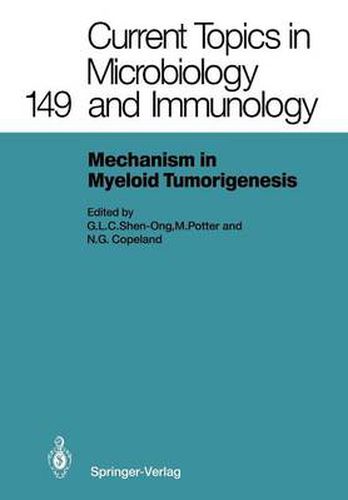Readings Newsletter
Become a Readings Member to make your shopping experience even easier.
Sign in or sign up for free!
You’re not far away from qualifying for FREE standard shipping within Australia
You’ve qualified for FREE standard shipping within Australia
The cart is loading…






This title is printed to order. This book may have been self-published. If so, we cannot guarantee the quality of the content. In the main most books will have gone through the editing process however some may not. We therefore suggest that you be aware of this before ordering this book. If in doubt check either the author or publisher’s details as we are unable to accept any returns unless they are faulty. Please contact us if you have any questions.
Through numerous discussions with colleagues it became apparent that the time was right to begin a series of workshop-like meetings on myeloid tumorigenesis. Myeloid tumors are the nonlymphocytic tumors of the hematopoietic system which include tumors of the neutrophilic, monocytic, erythrocytic, basophilic (mast cell) and megakaryocytic lineages. Pioneering studies in myeloid tumorigenesis were initially made in chickens with the discovery of retroviruses that induce various kinds of myeloid tumors acutely (myelocytomatosis, myeloblastosis, and erythroblastosis). These avian retroviruses were subsequently shown to contain the oncogenes v-myb, v-~, v-~, v-erbA, or v-erbB. There have been dramatic advances in studying the pathogenesis of hematopoietic tumors in genetically defined mammalian systems. Many of the well developed model systems in inbred mice, have focused on T- and B-1ymphoma development. Although myeloid tumors have been found in mice, they have not been studied as intensively as lymphoid tumors. Possibly this is because myeloid tumors are less common than lymphoid tumors. Recently, there has been renewed interest in murine myeloid tumor systems. This focus has resulted from 1) the discovery of inbred strains of mice (e. g. BXH-2, AKXD- 23, SJL/J) that are highly susceptible to spontaneous or induced myeloid tumorigenesis; 2) establishment of transplantable murine myeloid tumors (e.
$9.00 standard shipping within Australia
FREE standard shipping within Australia for orders over $100.00
Express & International shipping calculated at checkout
This title is printed to order. This book may have been self-published. If so, we cannot guarantee the quality of the content. In the main most books will have gone through the editing process however some may not. We therefore suggest that you be aware of this before ordering this book. If in doubt check either the author or publisher’s details as we are unable to accept any returns unless they are faulty. Please contact us if you have any questions.
Through numerous discussions with colleagues it became apparent that the time was right to begin a series of workshop-like meetings on myeloid tumorigenesis. Myeloid tumors are the nonlymphocytic tumors of the hematopoietic system which include tumors of the neutrophilic, monocytic, erythrocytic, basophilic (mast cell) and megakaryocytic lineages. Pioneering studies in myeloid tumorigenesis were initially made in chickens with the discovery of retroviruses that induce various kinds of myeloid tumors acutely (myelocytomatosis, myeloblastosis, and erythroblastosis). These avian retroviruses were subsequently shown to contain the oncogenes v-myb, v-~, v-~, v-erbA, or v-erbB. There have been dramatic advances in studying the pathogenesis of hematopoietic tumors in genetically defined mammalian systems. Many of the well developed model systems in inbred mice, have focused on T- and B-1ymphoma development. Although myeloid tumors have been found in mice, they have not been studied as intensively as lymphoid tumors. Possibly this is because myeloid tumors are less common than lymphoid tumors. Recently, there has been renewed interest in murine myeloid tumor systems. This focus has resulted from 1) the discovery of inbred strains of mice (e. g. BXH-2, AKXD- 23, SJL/J) that are highly susceptible to spontaneous or induced myeloid tumorigenesis; 2) establishment of transplantable murine myeloid tumors (e.